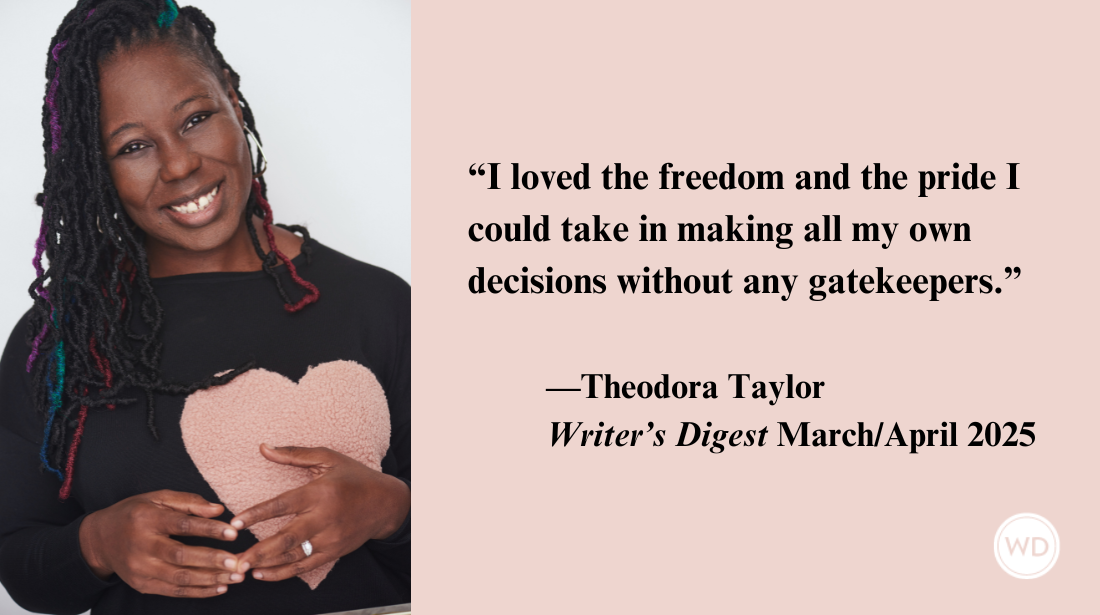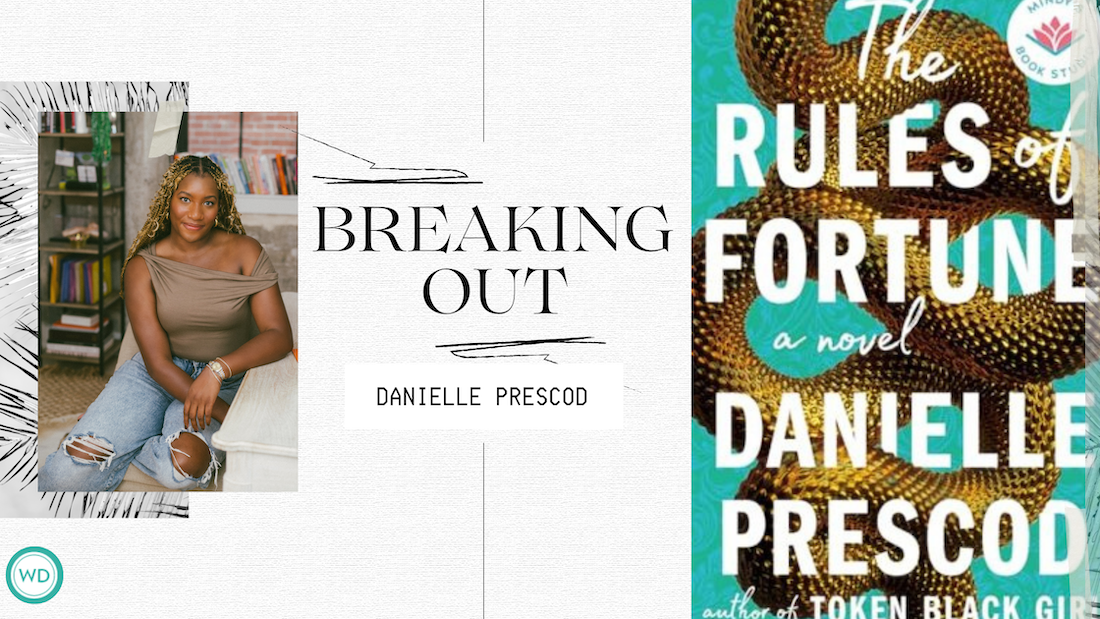Writing Mistakes Writers Make: Hiding the Pitch or Selling Point of Your Writing
The Writer’s Digest team has witnessed many writing mistakes over the years, so we started this series to help identify them for other writers (along with correction strategies). This week’s writing mistake is hiding the pitch or selling point of your writing.
Everyone makes mistakes—even writers—but that's okay because each mistake is a great learning opportunity. The Writer's Digest team has witnessed many mistakes over the years, so we started this series to help identify them early in the process. Note: The mistakes in this series aren't focused on grammar rules, though we offer help in that area as well.
Rather, we're looking at bigger picture mistakes and mishaps, including the error of using too much exposition, neglecting research, or researching too much. This week's writing mistake writers make is hiding the pitch or selling point of your writing.
Writing Mistakes Writers Make: Hiding the Pitch or Selling Point of Your Writing
As an editor, I've received a lot of article pitches over the years, and I've heard quite a few fiction pitches for books. One of the most common mistakes many writers make is hiding their pitch or the selling point of their writing deep within their query or in-person pitch. In a business where agents and editors are usually short on time, getting to the point early is key for writers trying to find publishing success.
Here's a made up example query based off several I've received like it over the years:
Dear Editor,
Let me introduce myself. I'm Joe Writer, and I started writing when I was in my teens. Then, I found some success in college writing for my college literary journal and meeting some really great writers who you may know, and they all said they loved my work.
But then I went into engineering and started gathering real-life stories about the amazing feats of engineers and modern miracles found in science. Really incredible things that you wouldn't believe if I told you.
All of this to say that I'm pitching you today on this romance novel I wrote about an engineer who falls in love with another engineer while trying to save the world from climate change.
I'm not famous yet, but I think this could be the book that finally helps me realize my goal of becoming a famous writer who everyone loves to read. Would you like to read the first chapter?
Sincerely,
Joe Writer
I used fiction as an example here, but I've seen this countless times in nonfiction pitches as well for articles and book-length pitches. As an editor, I expect the main pitch or selling point to be in the first sentence or at least the first paragraph. In this example, "Joe Writer" doesn't reveal he's pitching a romance novel until the third paragraph after writing two paragraphs that have nothing to do with the novel.
If I can't figure out what you're pitching, then I can't accept it. Also, if I have to hunt for what you're pitching, then I'm usually already 99% of the way to rejecting the writing, because I would expect the story or article to be written in the same style. So hiding your pitch can lead to bad consequences, even if your manuscript is great.
Mistake Fix: Lead With the Pitch or Selling Point
As an editor, I'm usually considering pitches in the "spare moments" that I'm not doing my other editorial work. So when I open an email with a pitch, I'm immediately scanning for the pitch. With each sentence in the example above, I'm not just reading it, I'm looking for the purpose of it.
So I read "Let me introduce myself," and think, "this sentence serves no purpose." Then I move to, "I'm Joe Writer, and I started writing in my teens," and think, "maybe this is a pitch related to young adult writing." Then I move to the next sentence and think, "maybe this is a pitch about famous writers he's met or somehow related to working on literary journals." Then the next paragraph makes me think he's going to pitch something related to engineering...or science. Finally, we get to a romance novel? What? Regardless of the merits of the romance novel, I've already worn myself out trying to figure out what this pitch is about.
Make life easier for editors and agents (and improve your chance of publishing success) by leading with the pitch. Here's a quick fix:
Dear Editor/Agent,
In my 70,000-word dark romantic comedy, To the Moon and Back, Martha and Ron are your typical fun-loving biochemical engineers who are falling in love in their test laboratory. There only seems to be one little problem: The world could literally come to an end in less than one week unless they figure out how to stop a catastrophe only they know is coming.
Will this novel get accepted? I don't know. But I do know that the editor or agent considering it won't have to poke around in the query before they get to the real meat of the pitch. They know the writer is pitching a "70,000-word dark romantic comedy" that involves two engineers and possibly the end of the world.
If this is something that piques their interest, they're going to read the rest of the query with great attention. If it's not a fit, then they know to move on, but they'll be in a better mood rejecting this pitch than the one where they had to hunt around for what the pitch even is.
So improve your chances of publishing success and lead with the pitch. Then, let the acceptances and rejections land where they will.
*****
2nd Draft provides a high-level review of your writing, pointing out reasons your work may be getting rejected, or may not meet the standards of traditional publication. After an evaluation of your submission, one of the professional 2nd Draft critiquers will provide feedback and advice. You’ll not only learn what’s working in your writing, but what’s not, and—most important—how to fix it..
Robert Lee Brewer is Senior Editor of Writer's Digest, which includes managing the content on WritersDigest.com and programming virtual conferences. He's the author of 40 Plot Twist Prompts for Writers: Writing Ideas for Bending Stories in New Directions, The Complete Guide of Poetic Forms: 100+ Poetic Form Definitions and Examples for Poets, Poem-a-Day: 365 Poetry Writing Prompts for a Year of Poeming, and more. Also, he's the editor of Writer's Market, Poet's Market, and Guide to Literary Agents. Follow him on Twitter @robertleebrewer.






